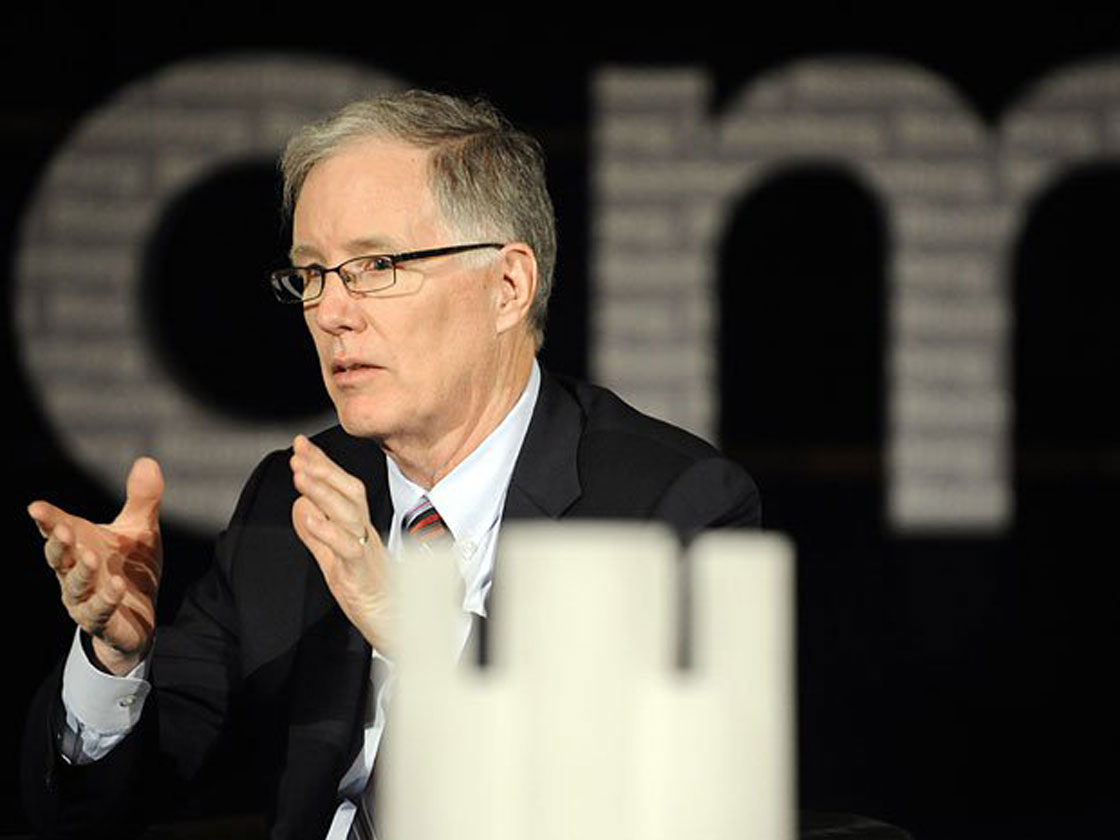Six in 10 workers are now without any financial safety net in retirement beyond what government coverage provides as well at what they can manage to squirrel away.

And with savings rates at well below historical norms at present, “it isn’t a pretty picture,” according to Jim Leech, the head of the Ontario Teachers’ Pension Plan, who himself is retiring in a few months’ time.
Presiding over one of the country’s biggest retirement funds responsible for the financial well-being of some 300,000 teachers has given Leech an unparalleled view of the challenges that will confront retiring Canadians in the coming years. And, on the eve of his own retirement, it has spurred him to lay out how best to manage them in a new book co-authored by journalist Jacquie McNish released this week.
In an interview, Leech explains why he decided to publish the book, who it’s for and why RRSPs aren’t cutting it. He also delivers a call to action for governments, companies and other stakeholders to take the difficult but necessary steps now to head off unnecessary hardships tomorrow.
Why did you write this book now?
“You go through a time of reflection as you’re coming up to retirement, and I thought about all that I’ve learned over the last number of years working in the pension industry. I wanted to pull (all) of that together in one document and have it written so that it could engage people. People engaged in this debate are economists, actuaries, accountants – but this is a people issue and needs to be talked about among people, including young people.
“So the objective was to get this written down, make some recommendations and present it in a way that’s very readable.”
- Michael Kovrig reflects on ‘brutally hard’ Chinese detention: ‘You’re totally alone’
- Conservatives set to table non-confidence motion Tuesday. What to expect
- After controversial directive, Quebec now says anglophones have right to English health services
- Something’s fishy: 1 in 5 seafood products are mislabelled, study finds
What are the biggest sources of trouble within Canada’s pension framework?
“The sources of trouble are three-fold. One is Canadians are not saving enough for retirement. We’re saving at a rate of about 5.5 per cent of income, whereas if you look at the studies that have been done, we should be saving somewhere between 17 and 20 per cent of income over a 25 to 30 year period. So we’re woefully low.

Get weekly money news
“Issue number two, is the longevity of our lives. That’s the good news, but the bad news is that we need that much more money to live that much longer.
What’s the state of Canadian pensions generally today?
“We’ve got a number of defined pension plans that are facing funding challenges. Corporations that are largely abandoning the defined benefit model, which is the least expensive way of providing retirement security, and we’ve got 60 per cent of people who are not covered by any workplace pension. It’s not that pretty of a picture.”
What are some recommendations in the book?
Aren’t management fees the scourge of managed funds – don’t they gobble up a huge share of the return?
Isn’t pension reform on the scale you’re talking about untouchable by politicians who are scared they’ll lose votes – the book is called ‘Third Rail’ after all?
“It’s not just politicians, there’s labour leaders and business leaders, too. Everybody’s got a hand in this one. It’s not that difficult. The ideas are all on the table. We’ve got the brain trust here. And there isn’t one single solution. So that’s why we’ve laid out the three solutions.
The interview has been edited and condensed. The Third Rail: Confronting our Pension Failures is available in bookstores and online now.






Comments